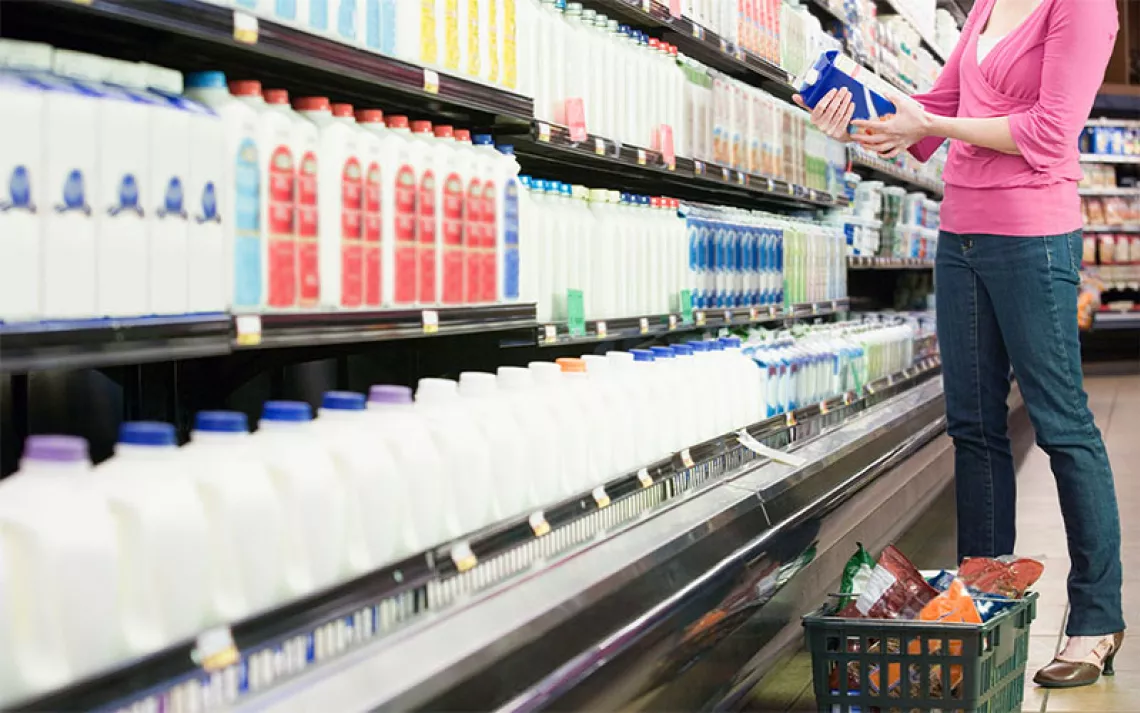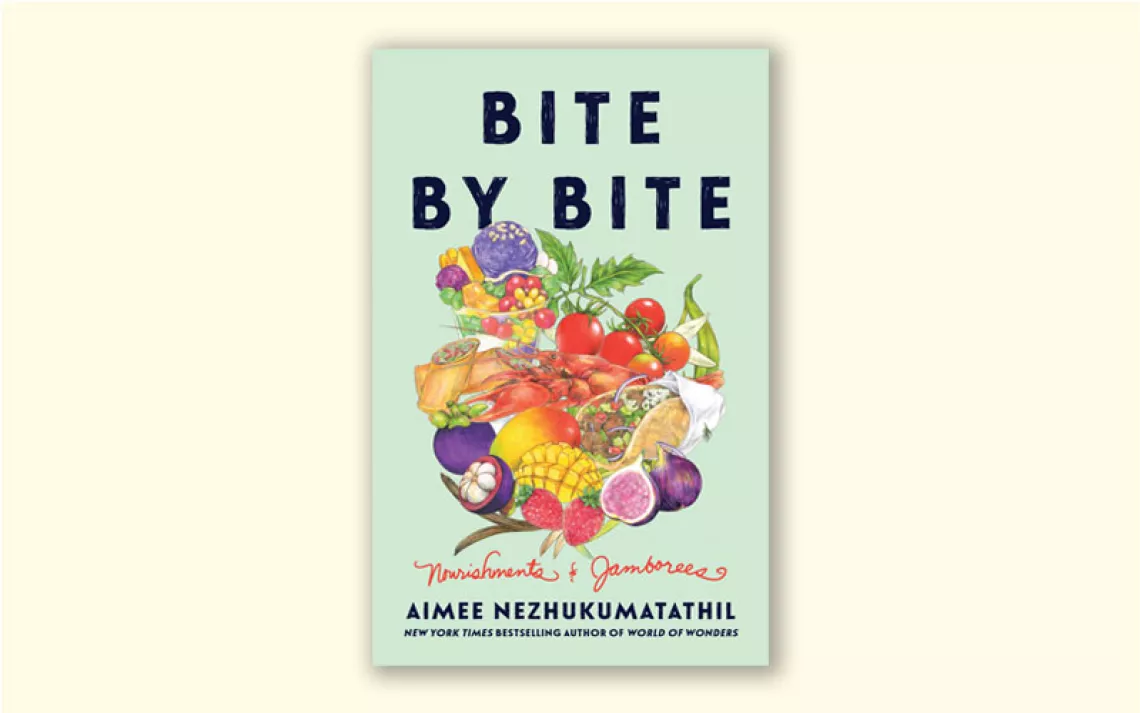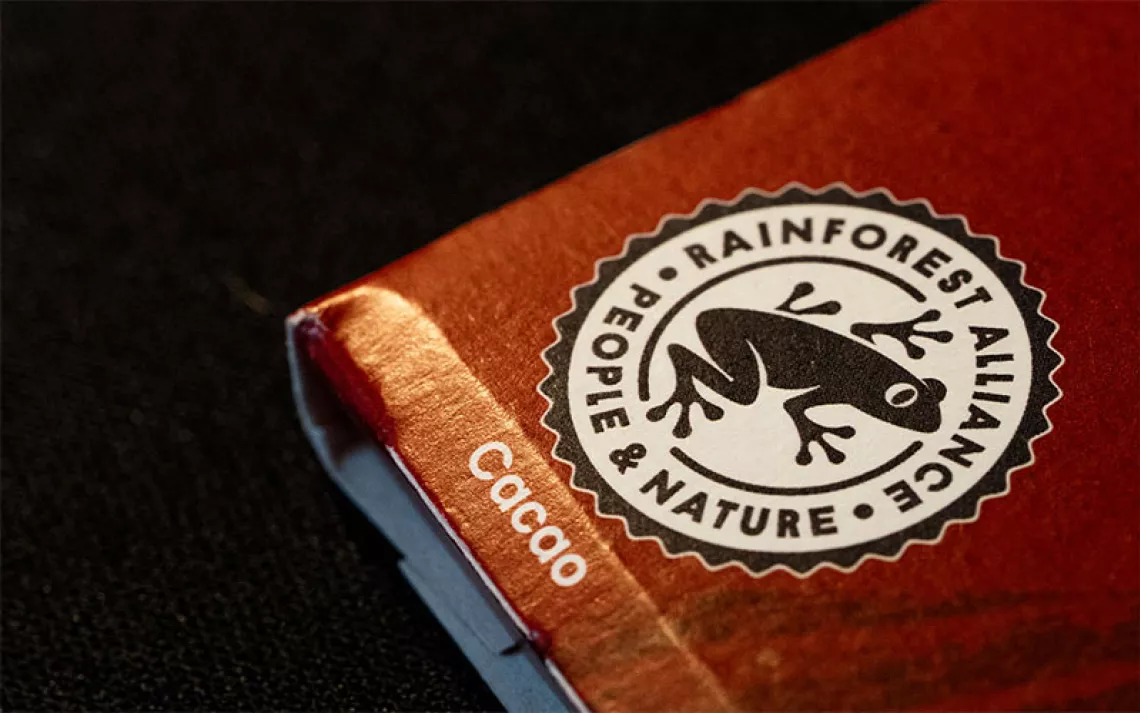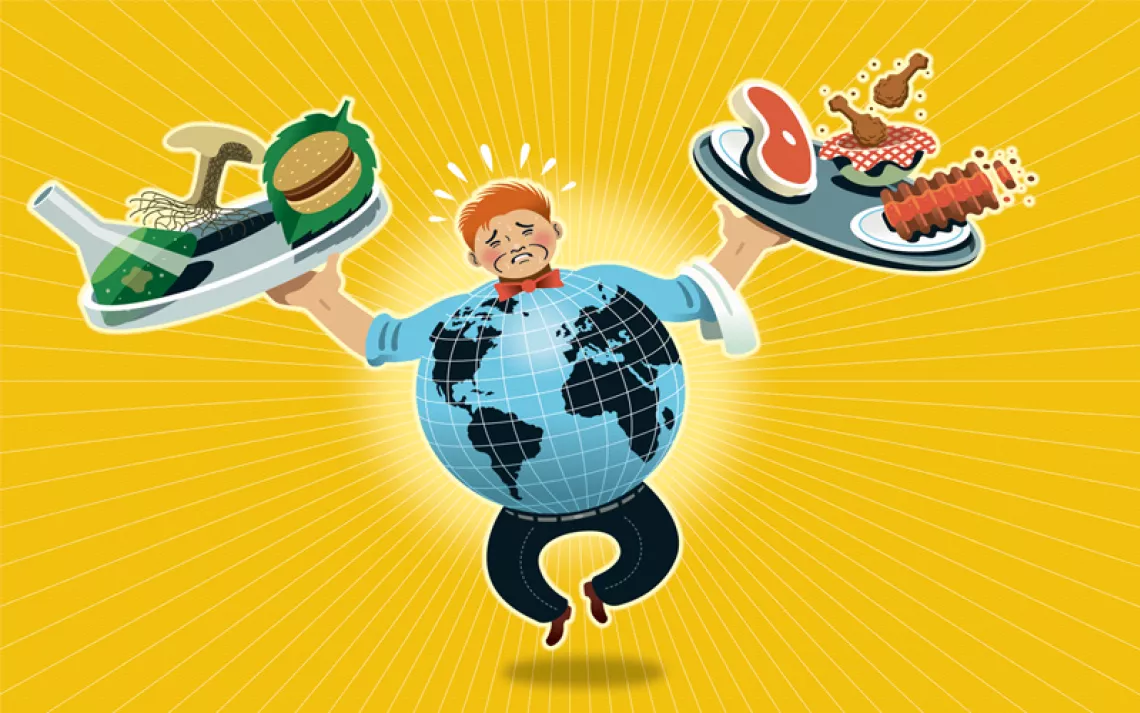Three Organic, Fair-Trade Alternatives to Coffee
One writer’s quest for an energizing sip to feel good about

Photo by Hannah Norman
I gulp an acai energy drink called Jungle Love, its fizzy, full-berry taste flooding my mouth. It’s 9 A.M. in my white-walled cubicle, and the electric purple and green can containing my daily caffeine fix occupies the prized spot where my coffee mug normally sits.
Americans consume 400 million cups of coffee daily, and you can normally count me in for at least two of those. And yet, says Palo Hawken, cofounder of the health-drink company REBBL, limiting coffee intake can lead to a healthier lifestyle. “Just because [two beverages] both have caffeine doesn’t make them equal in terms of health and balance.”
Besides being addictive, coffee is acidic, which means it’s harsh on the digestive system. Hawken adds that drinking too much of it can result in that “almost-out-of-control jitteriness.” And then of course there’s the drink’s uncertain future—coffee is high on climate change’s hit list. One study projects that the global areas suitable for growing coffee beans will eventually diminish by about half.
Health food markets are increasingly crowded with options for organic, fair-trade beverages that claim to supply coffee’s sought-after energy boost, along with abundant wellness benefits. But really, how do ingredients like yerba mate and green leaves stack up to a day’s worth of trips to the coffee machine, or a desperately chugged 5-Hour Energy? Intending to find out, I tasted my way through some of the newest and most intriguing energy drinks out there—including Sambazon, a global leader in acai products; Kuli Kuli moringa shots; and “super-herb” elixirs from REBBL. Along the way, I tried to gauge their storied ingredients’ effectiveness.
SAMBAZON
As a testament to the health food sector’s dive into energy drinks, my neighborhood Whole Foods is awash in brightly labeled organic refreshments. Scanning the refrigerated shelves, I spot three beverages from Sambazon—the only company to sell certified organic and fair-trade acai products in the United States—among a wide variety of energy drinks that share a tall, skinny, canned demeanor. I find three Sambazon choices: original, low-calorie, and the super-charged Jungle Love, which contains the equivalent caffeine of 2.5 shots of espresso. The price tag: $2.69 each.
I went big. Jungle Love (120 calories), which tastes like a berry-flavored Red Bull, was my first sip. Sambazon’s original (120 calories) and low-calorie (40 calories) installments are comparable; the latter is much less sweet. The result: a happily coffee-free day. I sustained consistent focus and general stamina, without any severe energy crashes. For caffeine, Sambazon uses yerba mate from the South American rainforest holly tree, green tea extract, and guarana seeds, a commonly sourced Brazilian herbal stimulant. Guarana is found in all kinds of Brazilian products—everything from soda to medicine. The seeds are even used in anti-cellulite creams because the caffeine supposedly speeds up the skin’s metabolism and induces weight loss.
Sambazon sources its acai berries—known for being extremely antioxidant- and nutrient-rich—directly from family farmers who wild-harvest trees in the Brazilian Amazon. The company controls its entire supply chain and even processes products in an off-the-grid factory. This is according to global compliance director Mandy Anhalt, who says the company aims to highlight ways to benefit from acai palm trees in a nonextractive way. Anhalt says that unlike the many planters who hack trees down for hearts of palm, or clear-cut them for soybean and sugar farms, Sambazon farmers naturally harvest berries on jungle plots. “Because we’re harvesting acai from the rainforest, we’re giving the rainforest that much more value,” says Anhalt, referring to the economic benefits that harvesting acai berries can provide for local communities.
Beyond its energy drink line, Sambazon offers superfruit packs, frozen sorbet, fresh juices, and acai powder. Products can be found in health food shops and grocery stores across the United States.
KULI KULI
I moved on to the company that produces drinks with moringa, a leafy green that grows across the tropics. It’s praised for being nutritionally dense—particularly rich in calcium, vitamins, iron, and antioxidants. Kuli Kuli’s products can be found in about 3,000 stores nationwide, including Whole Foods, Sprouts, and Safeway. The company produces moringa bars, powder, tea, and green energy shots—my focus. A sampler six pack costs $15.95 online.
“Personally, I can’t drink coffee; it just doesn’t agree with my system,” says founder Lisa Curtis. “Our energy shots are great for people like me, or for people who have already had their daily cup of coffee and need a more gentle boost for their afternoon pick-me-up.”
Kuli Kuli sources its moringa from Ghana, Haiti, and Nicaragua. In many nations, those included, the green-leafed plant is considered a weed, only eaten by those occupying the poorest societal rung. Curtis hopes to change that by making the crop more valuable by empowering female farmers through Kuli Kuli’s support for women-led cooperatives, and through the company’s efforts to raise awareness around deforestation. Compared to coffee, the caffeinated green smoothies are dense, carrying an earthy taste. One shot contains 95 milligrams of caffeine, the equivalent of a cup of coffee. But because it’s from green tea, it doesn’t “spike your body” quite the way coffee can, Curtis notes.
As someone who loves to cradle a warm mug and savor that cup of joe, I struggled with the drink’s on-the-go presentation. There’s a reason the Kuli Kuli green energy shot (35 calories) is packaged in such a small, condensed container; it’s not meant for slowly sipping. Of the three flavors (ginger lemon, coconut lime, and raspberry), I gravitated toward the ginger lemon, thanks to its zesty citrus tones.
Conclusion: The green energy shot serves much better as a post-lunch lift up than as a trusty companion for the morning slog.
REBBL
I had high hopes for REBBL and its sleek-looking line of caffeinated elixirs (about 150 calories each), including distinctive flavors like matcha latte, maca mocha, and ashwagandha chai. What sets these beverages apart, among other things, is their coconut-milk base. Because 60 percent of calories in coconut come from healthy fats known as medium-chain triglycerides, the drink is metabolized quickly and easily for much deeper stimulation, according to Hawken. While REBBL does offer cold-brew varieties, its tea- and herb-based products are intended to function as satisfying coffee alternatives.
I started with the matcha latte, a tea-based drink characterized by ground-up tea leaves. Each serving also contains 35 milligrams of l-theanine, an amino acid that acts as a calming stimulant. I swigged the rich tea latte-esque beverage, nutrient particles pooling at the bottom. No jitters or stomach cramps—simply pure deliciousness.
I moved on to the maca mocha. Maca, grown only in the Andes at high altitudes, is known for its chi-enhancing qualities and “essence energy,” according to Hawken. Oh, and for allegedly boosting sexual functioning. The 190-calorie drink tastes like a thick chocolate milk—satiating and stimulating, but certainly far from light.
Last year, Hawken teamed up with former Clif Bar CEO Sheryl O’Loughlin, whose high-profit track record and experience helming the likes of Quaker Oats, Craft, and Clif Bar could mean big things for the super-herb startup. Already, REBBL can be found in practically all natural food stores nationwide as well as some Safeways and Krogers. Drinks go for $3.99 each.
*
Post-experiment, I slip back into the life of coffee-induced highs and lows—marked by mild cold sweats, desk-bound jitters, and other byproducts of free office coffee. Increasingly, I find myself considering ways to incorporate nutrient-dense ingredients like maca and moringa and other natural stimulants, into my diet, to take it easy on my digestive tract and to up my long-term dynamism factor in the process.
 The Magazine of The Sierra Club
The Magazine of The Sierra Club



